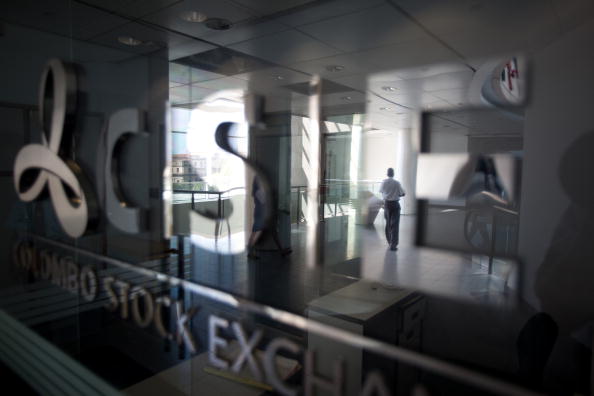
By: LekshmiSajeev
Sri Lankan shares rose for the fourth straight session on Wednesday (12) to hit a more than five-week closing high on local buying, offsetting continued foreign selling in equities, while the rupee ended slightly weaker on dollar demand from importers.
The benchmark stock index ended 0.81 per cent firmer at 5,378.73, its highest close since 7 May. It fell 0.24 per cent last week and declined 11.13 per cent this year so far.
Wednesday’s stock market turnover was Rs. 254.8 million ($1.44 million), less than this year’s daily average of about Rs. 527.3 million. Last year’s daily average was Rs. 834 million. Foreign investors sold a net Rs. 26.8 million worth of shares on Wednesday, extending the year-to-date net foreign outflow to Rs. 5.74 billion.
The rupee ended at 176.45/60 per dollar, compared with Tuesday’s close of 176.30/60, market sources said.
Analysts expect the rupee to weaken further as money flows out of stocks and government securities. The rupee fell 0.03 per cent last week but is up 3.48 per cent for the year. Exporters had converted dollars as investors’ confidence stabilised after a $1 billion sovereign bond was repaid in mid-January.
The rupee dropped 16 per cent in 2018 and was one of the worst-performing currencies in Asia.
Foreign investors sold a net Rs. 3.5 billion worth of government securities in the week that ended on 4 June, extending the island nation’s net foreign outflow to Rs. 21.9 billion so far this year, Central Bank data showed.
The Central Bank cut its key interest rates on 31 May, to support a faltering economy as overall business and consumer confidence slumped following deadly bomb attacks in April.
Sri Lanka is unlikely to hit its full-year economic growth target of 3-4 per cent following the bombings, junior finance minister Eran Wickremeratne told Reuters last month. A Reuters poll has forecast growth to slump to its lowest in nearly two decades this year.
The Government’s pension fund has resumed investing in risky assets as the stock market is “extremely undervalued at the moment and is considered a good time to go in,” the Central Bank Governor said last month at its monetary policy meet.
Reuters
